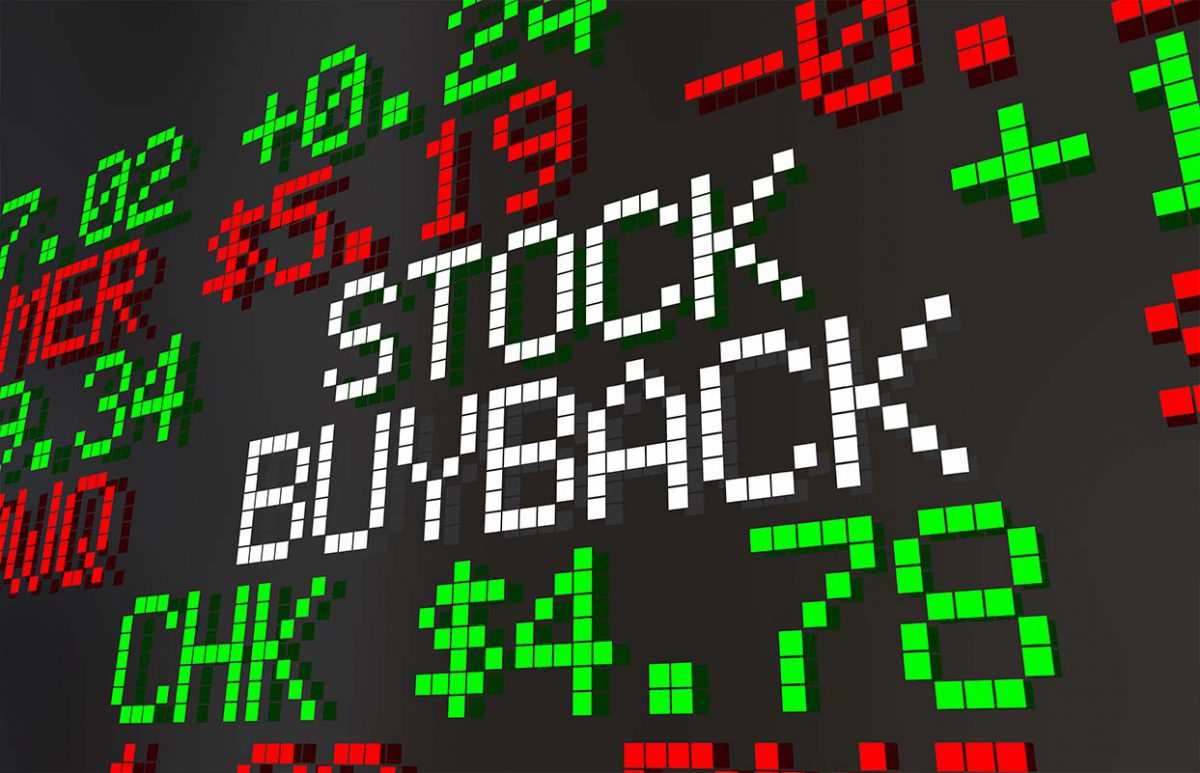Friday scaries. Stocks fell for another session on Friday, spooked by a barrage of potentially bad news. Producer prices continue to rise according to the latest data from the Bureau of Labor Statistics and investors were not surprised but they were uneasy.
N O T E W O R T H Y
Too much money. Is there really such a thing as too much money? All basic economic theory (including Marxism) starts with a few basic tenets, one of which (and my favorite) is: more is good. My regular readers have found that concept in my notes from time to time, typically in relation to consumers. Today, I would like to address this from the perspective of a corporation. To start, let’s go over stock investment at a high level. When we buy stock in a company, we are essentially providing that company with capital so it can do what it does best: earn profits. You wouldn’t want to give a company money if it chronically lost or wasted it. Obviously there are some exceptions to that generalization. Folks may make investments in losing companies with hopes of a turnaround or future development. Others may invest in companies because they believe in a cause, despite weak chances of profitability. Those exceptions aside, we turn over our hard-earned dollars to companies, and in return we expect them to use it to accelerate their earnings and increase the value of the entity. If all works well, that increase in earnings will cause the value of the stock to increase thus providing some value increase for the investor in exchange for the investment. Back in the heyday of American industrial expansion investors would buy stocks in railroads, steel mills, auto manufacturers, etc. These companies would use the cash to lay more tracks, build more steel mills, or add production lines. All of these capacity increases allowed those companies to grow revenues and if they were really proficient, increase earnings by finding efficiencies. I know that is probably obvious to you so far, but stay with me. What if a company were able to gain significant profits with invested capital to the point where there was a growing excess of cash? In the case of a traditional industrial company, some of that cash would be returned to the investors in the form of a dividend. The dividend is not only an incentive, or a thank you to investors, but also a return of unused capital. At a high level, if a company cannot find investment opportunities that will return an excess over its cost of capital (what investors expect to earn on their investment), it is morally obliged to return it to the investors. I know this sounds very theoretical, but it really does exist in practicality… at some level. Now, it gets a bit more complicated with growth stocks. Growth companies are not expected to have any cash left over at the end of the year. Theoretically, they should be constantly investing in new growth opportunities. The technical terminology for that is ploughing profits into further growth opportunities. Take a company like Alphabet (Google), which is a growth aristocrat. When we invest in Alphabet, we expect great things. It is an innovation winner, constantly finding new technologies to revolutionize the way we live… and make lots of profits in doing so. Alphabet does not pay dividends, because they are expected to invest all excess cash in new potentially larger growth prospects. The company has done a fabulous job of doing that in the past, and shareholders have been rewarded with a growth in stock value… how about an +885% return in the past 10 years. As you might expect, finding areas of great growth is not so easy, even if you are Google. If the company has nothing to invest in, cash will begin to build up. If you are an investor, why would you give your money to Alphabet if they were simply going to deposit it in the bank and do nothing with it? Companies like Alphabet, Apple, Microsoft etc. have huge amounts of cash resulting from many years of extreme profitability and they return some of that unused, unneeded cash through stock buybacks.
Stock buybacks are another way of paying a dividend to shareholders. Theoretically, your stock is worth more if the company retires shares. More practically, earnings per share (EPS) goes up because there are less… well, shares outstanding. I don’t want to get into the finance math weeds on this, but we all accept the fact that increasing EPS is a good thing and that it typically causes a stock to go higher. So, there we go, share buybacks cause stocks to go higher. If you are an investor in those stocks, you will be pleased that company has retuned unused capital causing your stock to go higher. It is a testament of a company’s success and you, the shareholder, deserve the bump-up for taking the risk. As you might guess, companies like it when their stock goes up, and not just because its executives are heavily compensated with stock, but rather because it is the basis for their existence… to grow in value. Some companies will go through extreme measures to ensure that their stocks go higher. Some may even borrow money and use the proceeds to buy back stock. Though it is technically a refinance and today, quite legal, it does raise a moral eyebrow. That aside, stock buybacks themselves have always been the subject of morality questions. It is true that if a company executive decides to do a buyback and that executive happens to own a large share of the company, the executive is in fact, making a decision that will enrich him or her. Assuming that the company would legitimately like to return excess capital resulting from success, there should be no morality question. Excess cash is a result of successful execution which should result in increased value. You can see where this can get a bit murky. That is why stock buybacks have been a source of recurring interest to more liberal politicians. On Friday, it was reported that some politicians were considering a 2% corporate tax on stock buybacks. Though the talking points for the new tax read like punishment for successful corporate executives, the real reason is that Congress must find revenues to pay for the large spending proposals being considered, and this would just be another form of corporate taxation. Share buybacks, like all things, are good when they are used responsibly, and they should be applauded and protected by shareholders. While a new tax will certainly raise the bar for companies considering buyback programs, healthy companies who return capital regularly should not be impacted significantly, as they will simply have 2% less to invest in the buybacks. As an example, Apple bought back $18.8 billion of stock in Q1 of this year. If it reserved 2% to pay the newly proposed tax, that would mean $376 million less in buybacks. Apple’s share price at the end of Q1 was $122.15, which means around 3.1 million shares would not have been bought back, representing 0.02% of the 16.5 billion shares outstanding. That would hardly represent a significant impact on EPS in the case of Apple, though all companies are different. The proposal states that the new tax would bring in about $100 million in new taxes over 10 years. I suppose everything counts when you are attempting to pay for $3.5 trillion in proposed spending.
THE MARKETS
Stocks traded down on Friday on a larger than expected PPI, news of a newly proposed tax on stock buybacks, and rumors that the Biden Administration is investigating questionable subsidies by China. The S&P500 fell by -0.77%, the Dow Jones Industrial Average dropped by -0.78%, the Nasdaq Composite slid by -0.87%, and the Russell 2000 Index traded off by -0.96%. Bonds also fell and 10-year treasury yields rose by +5 basis points to 1.34%. Cryptos dropped by -3.13% and Bitcoin slipped by -2.55%.
NXT UP
– No numbers today, but later in the week we will get Consumer Price Index, regional Fed reports, Industrial Production, Retail Sales, weekly jobless claims, and University of Michigan Sentiment.
Please refer to the attached economic release calendar for details.
IMPORTANT DISCLOSURES.
Muriel Siebert & Co., LLC is an affiliated broker/dealer of the public holding company, Siebert Financial Corporation, which also owns Siebert AdvisorNXT, LLC. Siebert AdvisorNXT, LLC is a registered investments advisor (RIA) with the SEC and with state securities regulators. We may only transact business or render personal investment advice in states where we are registered, filed notice or otherwise excluded or exempted from registration requirements. Investment Advisor products are NOT insured by the FDIC, SIPC any federal government agency or Siebert’s parent company or affiliates.
You are being provided this Market Note for general informational purposes only. It is not intended to predict or guarantee the future performance of any security, market sector or the markets generally. This Market Note does not describe our investment services, recommendations or market timing nor does it constitute an offer to sell or any solicitation to buy. All investors are advised to conduct their own independent research before making a purchase decision. This Market Note is to provide general investment education and you are solely responsible for determining whether any investment, security or strategy, or any other product or service, is appropriate for you based on certain investment objectives and financial situation. Do not use the information contained in this email as a basis for investment decisions. You should always consult your investment advisor and tax professional regarding your investment situation before investing. The charts and graphs are obtained from sources believed to be reliable however Siebert AdvisorNXT does not warrant or guarantee the accuracy of the information. Any retransmission, dissemination or other use of this email is prohibited. If you are not the intended recipient, delete the email from your system and contact the sender. This is a market commentary, not research under FINRA Rule 2210 (b)(1)(D)(iii) and FINRA Rule 2210 (c)(7)(C).
© 2021 Siebert AdvisorNXT All rights reserved.

